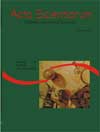<b>Academical Autonomy Without Easy Answers</b> - DOI: 10.4025/actascihumansoc.v25i2.2183
Abstract
The rehearsal points the limits of the classic vision of autonomy, as paradigm to clarify the theme understanding in the context of academical Institution study. It evidences that the subject of the academical autonomy has been limited, mainly, to the financial and budget aspects. It presents reflections about the need of being included in the political calendar of the theme, discussion starting from slopes of the complex thought. Although it is verified that academical autonomy is always relative, it defends that it must, permanently, be conquered by the competence and the prestige close to the society, its true keeper, through a state concession. The study is exploratory and the presentation of the results is descriptive and conceptual-analytical, what justifies the relevance for the necessity to be reflected, permanently, by new theoretical references. This work is supported by the contributions presented by Alvim (1995), Calderón (2000), Durham (1989), Fávero (1988, 1997), Mariotti (2000), Morgan (1996), Morin (2000, 2001), Ranieri (1994), Vergara (1988). It defends here, the need of more studies about autonomy in the perspective of the transdisciplinarity as suitable for Morin (2001)Downloads
Download data is not yet available.
Published
2008-04-15
How to Cite
Tatto, L., Caon, K. D. de, & Colossi, N. (2008). <b>Academical Autonomy Without Easy Answers</b> - DOI: 10.4025/actascihumansoc.v25i2.2183. Acta Scientiarum. Human and Social Sciences, 25(2), 283-293. https://doi.org/10.4025/actascihumansoc.v25i2.2183
Issue
Section
Education
DECLARATION OF ORIGINALITY AND COPYRIGHTS
I Declare that current article is original and has not been submitted for publication, in part or in whole, to any other national or international journal.
The copyrights belong exclusively to the authors. Published content is licensed under Creative Commons Attribution 4.0 (CC BY 4.0) guidelines, which allows sharing (copy and distribution of the material in any medium or format) and adaptation (remix, transform, and build upon the material) for any purpose, even commercially, under the terms of attribution.
Read this link for further information on how to use CC BY 4.0 properly.
























